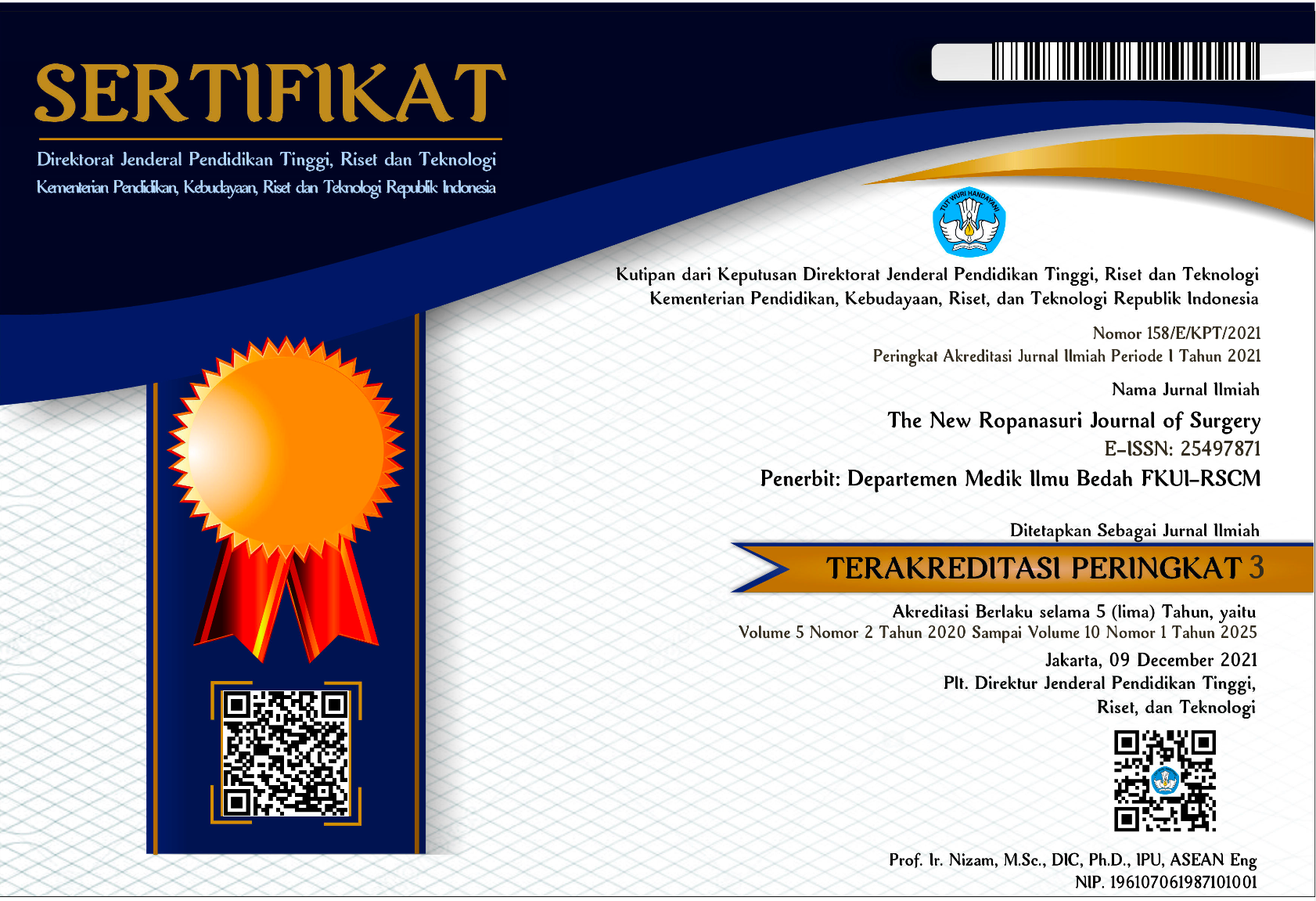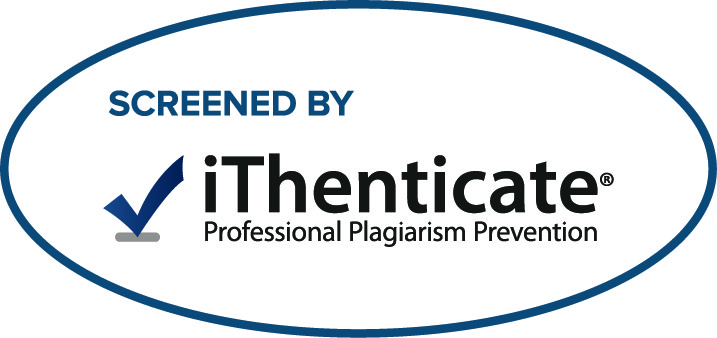Abstract
Introduction. Surgical site infection (SSI) after gastrointestinal surgery can affect the mortality and morbidity of the patients. Risk factors are needed to prevent and decrease the number of SSI. This study investigated the incidence of SSI, the preoperative and intraoperative risk factors of gastrointestinal surgeries..
Method. A retrospective audit analysis of age, nutritional status, preoperative length of stay, length of surgery, type of surgery, degree of contamination in adult gastrointestinal surgery patients at dr. Cipto Mangunkusumo General Hospital from 2012 to 2016. Outcomes consisted of incidence, and potential univariate risk factors were determined to investigate the independently associated factors using multivariate logistic regression.
Results. In four years, the incidence of SSI is 3.4% among 4,357 gastrointestinal surgeries, with 86.4% of surgical site infections appears in contaminated wound operations. Our study included 116 subjects. From univariate analysis between SSI as dependent factors and the risk factors, age (p = 0.2), preoperative length of stay (p=0,06), length of surgery (p = 0.1), and degree of contamination (p = 0.003) have correlative association with SSI. The risk factor with surgical site infection is surgical wound contamination (OR = 1.233, p = 0.011) and independent from other risk factors..
Conclusion: Four factors correlate with SSI; there are age, preoperative length of stay, length of surgery, and degree of contamination. The degree of contamination is a significant risk factor for SSI.
Recommended Citation
Syafitri, Annisa; Mazni, Yarman; and Budiningsih, Setyawati
(2020)
"Analysis of Preoperative and Intraoperative Risk Factors Of Surgical Site Infection In Gastrointestinal Surgeries,"
The New Ropanasuri Journal of Surgery: Vol. 5:
No.
2, Article 5.
DOI: 10.7454/nrjs.v5i2.1085
Available at:
https://scholarhub.ui.ac.id/nrjs/vol5/iss2/5













